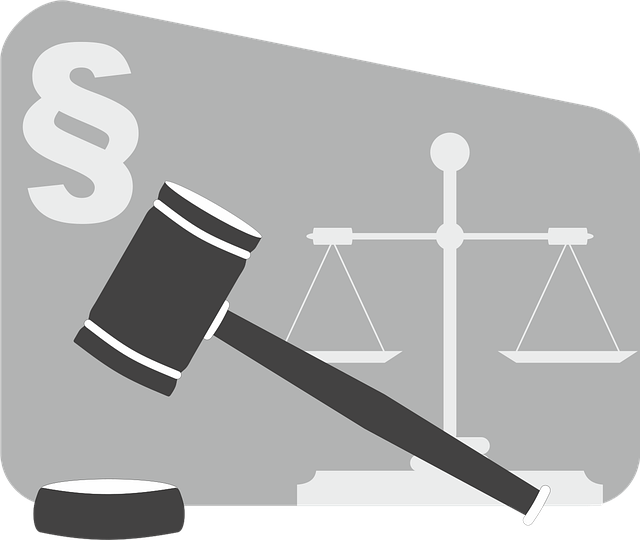Antitrust laws, vital for consumer protection and fair markets, pose challenges to small businesses accused of violations. Balancing consumer rights with entrepreneurial freedom, these laws prohibit monopolies and promote competition but can lead to financial and reputational risks. Experienced legal representation helps mitigate these risks, demonstrating the importance of antitrust regulations in fostering a healthy economic environment for startups and established enterprises alike. Proactive compliance through policies, training, and staying informed is key for small businesses navigating these complex legal landscapes.
“Unraveling Consumer Protection Suits: A Comprehensive Guide is your go-to resource for navigating complex legal landscapes. This article explores the intricate world of consumer protection, with a focus on its impact on small businesses and the role of antitrust laws. From understanding foundational principles to dispelling common myths, we provide insights into strategies for compliance and defense. Discover real-world case studies demonstrating the practical applications of these laws. Gain valuable knowledge to protect your business and empower informed decision-making in today’s competitive market.”
- Understanding Consumer Protection Laws
- Impact on Small Businesses: Antitrust Basics
- Strategies for Compliance and Defense
- Common Misconceptions Debunked
- Case Studies: Real-World Examples
Understanding Consumer Protection Laws

Consumer protection laws play a pivotal role in safeguarding the rights and interests of individuals in their interactions with businesses. These regulations are designed to ensure fair practices, transparency, and accountability from companies, thereby fostering trust among consumers. The impact of antitrust laws, in particular, is significant, especially for small businesses operating within competitive markets. While these laws aim to prevent monopolies and promote competition, they can sometimes present challenges for smaller enterprises, particularly when facing legal accusations.
Understanding the intricate web of consumer protection regulations is crucial for businesses to avoid potential pitfalls. By adhering to fair trade practices, providing accurate product information, and ensuring transparent pricing, companies can mitigate risks and build strong defenses against any allegations. Many successful outcomes, including winning challenging defense verdicts, have been achieved for clients by lawyers specializing in antitrust law, who focus on crafting robust strategies to protect their interests and avoid indictment for his clients.
Impact on Small Businesses: Antitrust Basics

The impact of antitrust laws on small businesses is a complex interplay that can significantly shape their competitive landscape. While these laws aim to protect consumers and promote fair markets, they can also pose challenges for smaller entities trying to establish themselves. Antitrust regulations, such as those under the Sherman Act or Clayton Act, prohibit anti-competitive practices like price fixing, market division, and monopolization. For small businesses serving both corporate and individual clients, navigating these legal boundaries is crucial for their survival.
Many small businesses find themselves on the receiving end of antitrust lawsuits, which can result in substantial financial burdens and reputational damage. However, experienced legal representation has proven to be a game-changer for many. By presenting compelling defenses and leveraging strategic arguments, lawyers have helped small businesses win challenging defense verdicts. This not only ensures fair treatment but also underscores the importance of antitrust laws in fostering a level playing field where innovative startups and established enterprises alike can thrive.
Strategies for Compliance and Defense

Many consumer protection suits involve complex legal battles, especially when they concern antitrust violations. Businesses, particularly small enterprises, face a formidable challenge navigating these cases due to the far-reaching impact of antitrust laws. However, proactive strategies can significantly enhance their chances of compliance and defense. Implementing robust internal policies and training employees on fair business practices is essential to avoid costly mistakes. Staying abreast of evolving legal landscapes, including regulatory changes and court rulings, is vital for businesses to adapt their strategies accordingly.
Throughout the country, small businesses must be prepared to defend themselves across all stages of the investigative and enforcement process. A comprehensive understanding of antitrust regulations and a willingness to mount a winning challenging defense can lead to favorable outcomes. By fostering a culture of ethical conduct and transparency, companies can build a strong legal foundation, which is crucial for navigating such complex cases successfully.
Common Misconceptions Debunked

Many small businesses hold misconceptions about consumer protection suits and the role of antitrust laws in their operations. It’s crucial to dispel these myths to ensure entrepreneurial success. A common misconception is that antitrust laws are solely designed to protect consumers at the expense of smaller companies, often leading to fears of excessive legal scrutiny and high costs. However, these laws primarily aim to foster fair competition, prevent monopolies, and promote a robust marketplace. Antitrust regulations can actually offer small businesses protection against larger competitors who may engage in anti-competitive practices.
Another misunderstanding is that consumer protection suits always result in heavy penalties or complete dismissal of all charges. In reality, the outcome varies based on the specific case. Many suits settle out of court, leading to reasonable agreements that address harm done without unduly burdening either party. The impact of antitrust laws on small businesses can be mitigated through proactive measures like seeking legal advice during business planning and maintaining transparent, competitive pricing strategies. Understanding these dynamics empowers entrepreneurs to navigate legal landscapes more effectively.
Case Studies: Real-World Examples

Consumer protection suits often serve as powerful case studies, shedding light on the intricate interplay between businesses, consumers, and legal frameworks. Real-world examples illustrate how the enforcement of antitrust laws can significantly impact small enterprises, both positively and negatively. One notable instance involves a small local retailer who successfully challenged a dominant corporation’s pricing strategy, resulting in improved market competition and fairer consumer prices. This case not only benefited corporate clients but also enhanced the overall health of the local economy, demonstrating the broader implications for philanthropic and political communities.
High-stakes cases like these underscore the crucial role of antitrust legislation in maintaining a level playing field. By examining such scenarios, we gain insights into the delicate balance between fostering innovation and protecting consumers from predatory practices. This approach ensures that small businesses can thrive without undue barriers while safeguarding the interests of individual clients across various sectors.
Consumer protection suits are a critical aspect of ensuring fair practices in the marketplace, particularly for small businesses navigating complex legal landscapes. By understanding consumer protection laws, such as antitrust basics, entrepreneurs can avoid costly mistakes and ensure their operations remain compliant. The impact of antitrust laws on small businesses is significant, but with the right strategies for compliance and defense, they can compete effectively while safeguarding consumer rights. Examining real-world case studies highlights the importance of staying informed and proactive in this ever-evolving regulatory environment, ultimately fostering a healthier business ecosystem.






